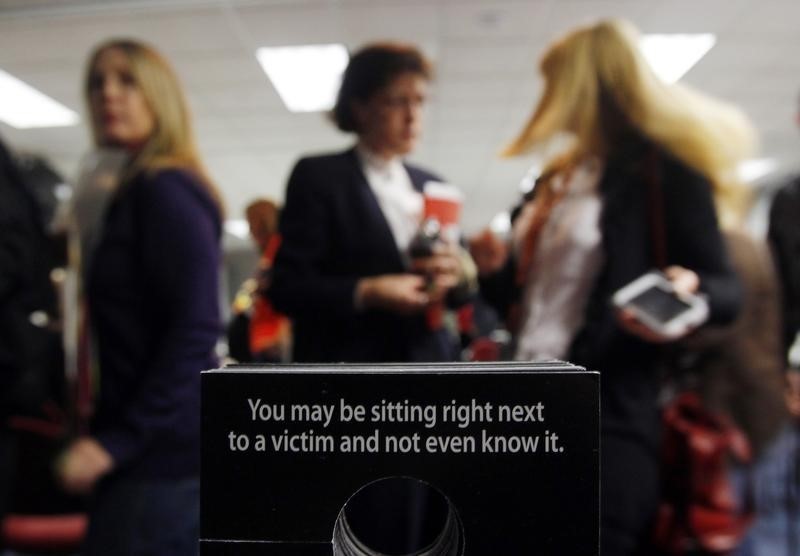By Ellen Wulfhorst
WASHINGTON, D.C. (Thomson Reuters Foundation) - Necole Daniels spent years as a sex trafficking victim, pulled into the life by her mother and grandmother who each were prostitutes in the sex trade.
At age 42, Daniels now works as a victims' advocate, proud that she broke the chain and that her own children did not fall into a life of degradation and violence.
"I was born into vulnerability," she said. "It was very easy for me to slide into the sex trade.
"I always say I didn't choose the life. The life chose me," she added.
Daniels is a co-founder of World Without Exploitation (WorldWE), a coalition launched on Tuesday to end sex trafficking and sexual exploitation.
The coalition brings together more than 60 lawyers, activists, artists, service providers, community leaders and others who battle sex trafficking, from escort services to the streets, organizers said at its launch in Washington, D.C.
Sex trafficking generates an estimated $99 billion in illegal profits worldwide each year, according to the International Labour Organization.
The coalition aims to have an impact on laws and policies as well as popular culture that glamorizes so-called "pimp" culture, said Lauren Hersh, another WorldWE co-founder.
"I see it everywhere. I see it on my Facebook (NASDAQ:FB) feed with parents who put a cap on their little boy and then everybody's saying, 'He's so pimp,'" she said.
"When we're glamorizing it, we're normalizing it, and when we're normalizing it, we have a huge problem," Hersh said.
The coalition aims to give survivors a major role, organizers said.
Daniels, who recounts being raped repeatedly beginning at age 7 and began working in prostitution at age 15, advocates for services to help people born into damaged families like hers to escaped a future being trafficked.
"In a lot of families where there's sexual abuse from generation to generation to generation, it grooms you in a sense," she said.
Another trafficking survivor, Cherie Jimenez, 66, who also has linked up with WorldWE, works at Boston's EVA Center, a survivor-led program that helps women break free of the sex trafficking industry.
It aims to build awareness of social, economic and other factors such as family violence, underfunded schools and poorly run foster care that leave girls and women vulnerable to trafficking, she said.
"We need to be part of a movement," Jimenez said.
WorldWE also plans to compile an archive of testimony by trafficking survivors, which would be the first of its kind in the United States, organizers said.

The alliance is funded by grants and private donors, Hersh said.